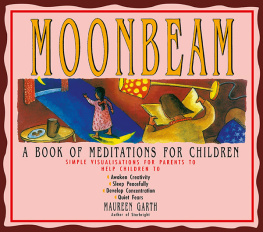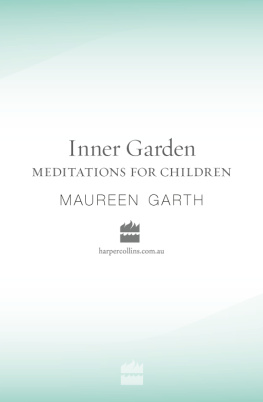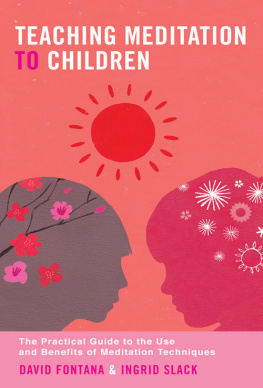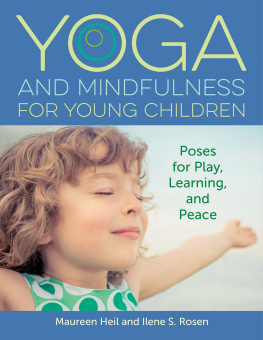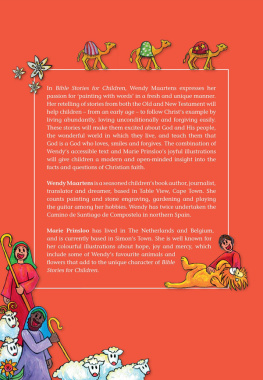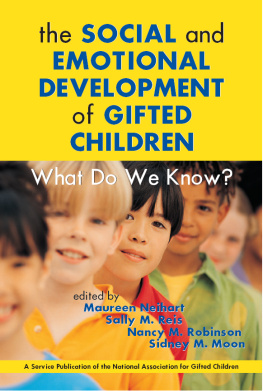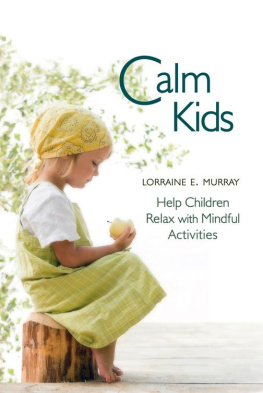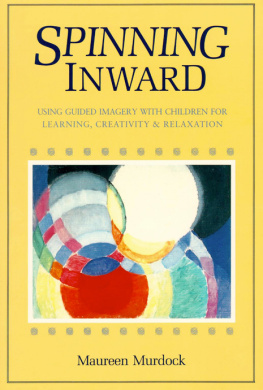After completing this manuscript, Maureen Garth discovered that she had cancer. Although she had successfully overcome cancer in the past, this was not to be the case this time. Maureen continued her speaking and teaching engagements about meditation for as long as she was able, but passed on from this life a few months before the publication of this book.
Maureen is survived by her beloved daughter Eleanor, to whom she dedicated each of her books, and who was the original inspiration for Maureens innovative use of creative visualization with children.
Welcome to Earthlight, the fourth of my collections of creative visualizations for children. In this introduction I explain the importance of meditation for children, both for their peacefulness, creativity, and growth during their early years, and for laying the foundations for an adult life of serenity and wellbeing. I also provide practical guidance on the use of the meditations.
Readers of my other books for children will already be familiar with some of what follows, which is of necessity repeated from the introductions of the previous books for readers new to my approach to meditation.
Earthlight completes my series of meditation books for younger readers, and joins Starbright, Moonbeam, and Sunshine in bringing the stars, the moon, the sun, and now the earth into the lives of children through the use of meditation.
Children and Their Growth
From the time of their birth, our babies live in complete trust, utterly dependent on us to care for them. We bathe them, feed them, play with them, and handle them lovingly in so many ways, ensuring they feel nurtured and loved. We clean their tiny bodies, finding it easy to kiss and cuddle these small parcels of delight. There is nothing we would not do to assist them to develop all their abilities. Perhaps you have experienced feelings of amazement that this small person is so totally in your care, if only for a short time.
Sometimes we can feel that our children will remain babies for a long time, but this is not so. Even though they will be dependent upon us for many years, they start to exert their independence in many ways early in life. Indeed, the personality of a child may be so different from those of his or her parents that they may even wonder how their child came to be born to them!
Each tiny person is amazingly complete and this becomes more obvious as time goes by. We notice how the hands and feet coordinate, and the body grows stronger. Each day is a revelation, and each year another milestone bringing so many changes. Babies are so receptive and cooperative, and the changes in the early part of a childs life are amazing. They learn to roll over, to sit up, to walk, to talk, and to run. Their body movements change as coordination develops in their bodies. Their speech patterns mature. They pay attention to what you and others say and do, and become adept at imitation. Sometimes their efforts appear to be a parody of who we are, and this can even make us take stock of what we say and do.
Children bring a completeness into our lives that we have not experienced before, as well as a kind of bonding different from anything we have previously encountered. Holding this small parcel of delight makes us both wonder at the immensity of the world that he or she is entering, and realize that they will be so totally in our care for only a short period of time. When our babies first come to us, it seems as though the years before they will leave us stretch far into the future, but as we watch them grow, as we go through each milestone with them, the time becomes shorter and shorter, until it is time for them to make their own way in life, as we ourselves have.
In fact, children become independent at an early age. The skill of crawling gives them a certain degree of independence, and walking still more. When they can manage to feed themselves without help, they have gone to yet another stage of their development of independence. These are just the forerunners of developing their strengths and their will to do things unaided becomes stronger.
Pre-school or infants school allows children to become still further independent from the parental bonds. Their teachers become other role models of great influence, which takes them further in their quest for independence. Each step through primary and then secondary school furthers the process, until what was once a tiny bundle of dependence has moved to a far greater independence than we would have ever contemplated when we first beheld them as infants.
Through all this, most of us ensure our children receive the best schooling that we can afford. We encourage each stage of their mental and physical growth. We help them with their school work and listen to their problems. We help them deal with the emotional maze that friendships can be, as well as the disappointments that life can bring.
Life can be a difficult process for the young. When we look back on our own life and the mixed feelings we had about various issues we had to confront at an early age, we can understand how our own children may be perplexed by the attitudes or actions of their peers or others they have dealings with.
Children need to feel secure. While they are young, the family unit represents security. Having their own room, whether shared or not, with their own toys or animals around also helps their sense of security, as does going to school and having continuity of friends and teachers.
But there is a different sort of security that each of us needs, which is crucial for our development into an independent, confident person. It is not a security that comes from having particular things or people around. Ultimately, security is not about owning possessions or being dependent upon someone else. No person or thing can make us feel secure. Security is feeling good about ones self and so being secure within. This is achieved by each of us knowing ourself and this deep sense of security can be gained through meditation.
Meditation and Children
Meditation may seem like a heavy word when we speak of children or young people, or even of ourselves, but it is not. On the contrary, there is a lightness to it. Meditation does not restrict the mind. Meditation allows the mind to wander, to be at peace, to be free. It allows us to go deep within ourselves, to a quiet place where there is peace and tranquility. Meditation can help us to look at ourselves and our problems in new ways, and assist us in finding answers to our problems or to what we need in order to be happy.
Children have very receptive minds. From the time they are born, they are taking in information from their parents and other adults, their peers, and the environment. They are like a computer program, but one that grows and improves with age. They work with a simple program at first, then develop increasingly more complex ones as they mature.


